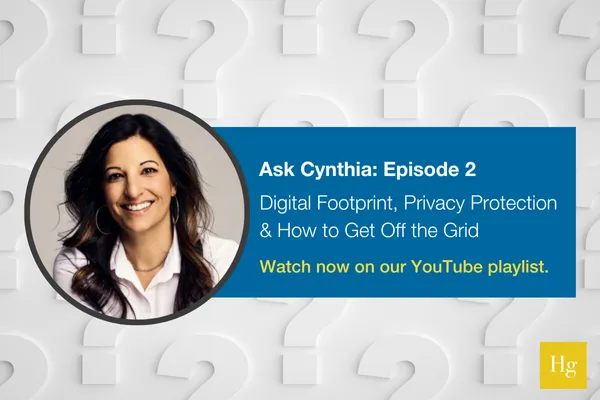
Ask Cynthia: Where is the Edge of the Grid?
Ask Cynthia: Where is the Edge of the Grid
Problem: The user thinks they can run away from their own data. The pervasive surveillance state is a real thing.
Question: I want to get off the digital grid, how do I start?
Response:
Let’s begin with a hard truth: You were never on the grid by choice. You were born onto it.
In the United States, that moment is marked by the creation of your Social Security number, your first national identifier. From there, the surveillance is relentless, though often wrapped in the soft blanket of convenience. Your baby photos are shared to family drives, Instagram feeds, and TikTok clips before you’ve said your first word. School records log your attendance, grades, and behavioral progress. Every honor society induction or soccer match win documented and searchable.
Then comes the driver’s license, your first official government-issued photo ID, unless you traveled abroad early and snagged a passport. Did you join the military? Thank you for your service; your DD-214 lives on at the National Archives. College enrollment, voter registration, job applications, medical appointments, utility bills, SNAP benefits, PPP loans, online shopping, dating profiles, even obituary records, they’re all just more breadcrumbs feeding a data-hungry world.
So, you want to go “off the grid”?
Christopher Knight, known as the North Pond Hermit, managed 27 years living alone in the Maine woods. He survived by stealth, breaking into local camps for supplies. His story, captured by Michael Finkel in The Stranger in the Woods, is a fascinating, if unsettling, look at solitude in the modern age. But even Knight, hidden in plain sight, left behind data: arrest records, book reviews, Google searches by the curious.
But you can reduce your digital footprint.
Here’s how to edge away from the grid without fully stepping into the woods:
Stop Participating: Log out of social media. Cancel the streaming services. Unpair the smart speaker. Leave your phone at home. The fewer platforms you engage with, the fewer data points you generate.
Use Cash: Credit cards, Venmo, Apple Pay, convenient, but traceable. Cash keeps your transactions quiet. Be mindful, though, large cash purchases draw attention of a different kind.
Hide in Plain Sight: Face recognition, fingerprint scans, even gait and voice analysis, these are being used more frequently. To reduce your exposure, avoid cameras (good luck), wear hats or masks in crowded areas, and don’t stand out.
Blend: This may be the most powerful tactic. In an age of noise, being average is camouflage. Fly economy, not private. Shop generic, not luxury. The more you blend, the harder you are to notice, or remember.
Limit Dependencies: Avoid subscription models, loyalty programs, and apps that require sign-in for basic tasks. These conveniences come at the cost of privacy.
Rethink the Goal: Instead of aiming for total erasure, which is almost impossible, focus on creating datanoise. Misdirect. Use burner accounts for research, spoofed numbers for logins, and open-source tools to manage your privacy settings.
The good news is once that data is out there, it can be removed. But it can and will continue to repopulate. This is one reason we are partnering with 360 Privacy. My team and I know and understand the need to keep your data – YOUR DATA.
Going “off the grid” is no longer a matter of buying a cabin in the woods. It’s about discipline, digital hygiene, and sometimes strategic invisibility. You’re not a ghost, but you can be a shadow.

